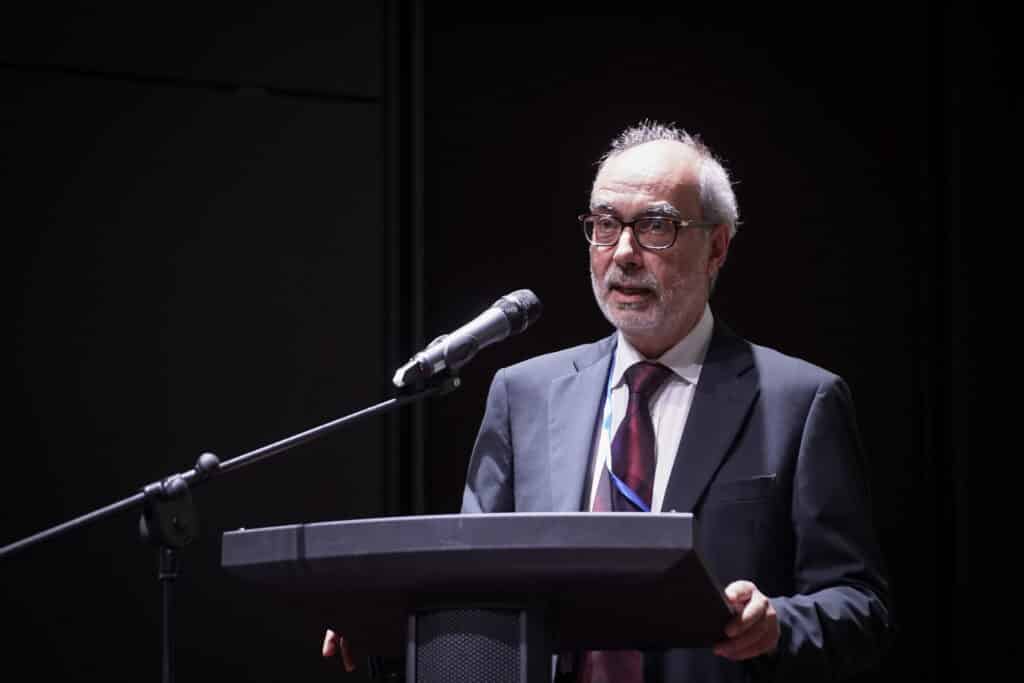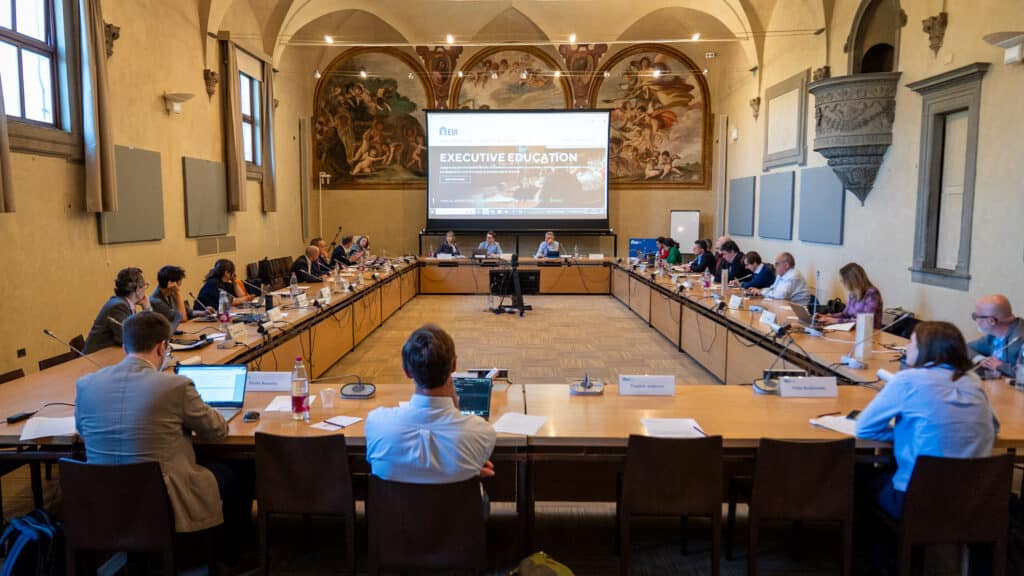Electronic Trading Platform as the Catalyst for Biomass Sector Competitive Transformation and Growth: Lithuanian Case Analysis
Korsakaite,D.*, Bieksa, D. , Jasas D.
The paper “Electronic Trading Platform as the Catalyst for Biomass Sector Competitive Transformation and Growth: Lithuanian Case Analysis” (Korsakaite,D.*, Bieksa, D. , Jasas D.) will be presented at the 8th Conference on the Regulation of Infrastructures (20-21 June, 2019).
ABSTRACT
Ensuring competitive energy markets have been at focus for academic, policy and public administration practice for a number of years. These efforts have been rewarded with essential changes in electricity and gas markets organisation mode all over Europe, and beyond.
Biomass as a product has many similarities with other energy resources – gas, coal, electricity, oil. Biomass is still holds a limited share in energy balances of the most developed countries, which take the lead and dictate the fashion of energy markets’ organisation. Once being a dominant energy resource, later superseded by fossils in Western states, biomass currently is considered as an alternative rather than the mainstream. Sector of biomass is mostly addressed in the context of climate change, as a carbon neutral, or almost neutral, alternative. Looking at biomass sector through the lenses of competitive energy markets reform is infrequent.
Nevertheless, biomass is a primary energy resource and as other primary resources requests consideration if the existing organisational mode is the most efficient and rewarding. Especially this is important if a given country has a significant or an increasing share of biomass in its energy balance. However, the design or model of organisation of biomass sector in a country is analysed to a far lesser extent.
In Lithuania, reform of biomass sector was conducted as a part of a broader package of energy markets’ reform, back in 2010 – 2014. Primarily, in Lithuania, heavily dependent on natural gas imports for district heating and other energy needs in 2010, biomass was considered as a potential option to effectively reduce dependency on gas in future. Noteworthy, district heating in Lithuania is an essential service, consuming a significant share of households’ annual budget. Therefore quick growth of biomass share in the primary balance requested adequate model for biomass market, facilitating provision of biomass benefits to the final consumers (for eg., residential consumer of centralised district heating).
Measures to fasten the switch from imported natural gas to biomass were designed and implemented in Lithuanian district heating sector, and beyond. Biomass exchange was one of the key cornerstones of the biomass sector’s reform. Biomass exchange was designed under similar terms as power exchange. This means that trading biomass has turned to electronic environment. Since 2012, biomass market has been digitalised.
Digitalisation was accompanied by other regulatory measures of importance. Namely, a legal obligation was introduced to use biomass exchange for entities engaged in regulated activities, being it direct regulation or indirect regulation. Regulatory methods for district heating tariff establishment were adjusted to incorporate impacts of digital competitive market of primary resource.
The essentially reformed biomass market, functioning on digital basis, works for 5 years by now, and the reform has brought major changes in the biomass market, regarding the number of active market participants, accessibility of the market (long term fuel supply contracts were abolished), competitive structure of the market. On the wider perspective, the reform resulted in essential change of fuels structure consumed for district heating industry, and this way – dramatic increase of biomass role in Lithuanian economy.
The objective of this work is to deconstruct the biomass market digital model implemented in Lithuania, assess the impact of regulatory reform conducted in biomass sector in Lithuania and suggest further regulatory measures to improve the operation of the digital biomass market.
The academic and practical novelty of the work – recent regulatory reform is analyzed and impacts of the reform are assessed. The practical applicability may be considered in terms of reforming further Eastern European markets and countries under transition and introducing market based principles in organising biomass sector.
Presentation is available here.
ABOUT THE AUTHORS
 Diana Korsakaite is a professional in regulation of multiple infrastructures. She is specialized in economic regulation and transiting monopoly infrastructure based markets to competition. Since 2010, working in energy and utilities area. Before moving to energy regulation, she was active in telecoms regulation. Since 2000, experienced in public governance and administration. 2010-2015 served as the Chair of national energy regulatory institution in Lithuania leading regulation through the period all the major energy sector transformations in Lithuania. Since 2015, she has working in international development area, energy markets. Chief of Party for USAID municipal energy reform project in Ukraine is the last role of engagement. Professional experience of Diana Korsakaitė is characterised by active involvement to international exchange over regulatory issues programmes and close relations with academic society. Diana Korsakaitė took part in multiple missions abroad to carry out training on regulation of infrastructures to regulatory institutions’ employers, including Albania, Montenegro, Georgia, Ukraine, etc. For several years, she had hold a full course on Energy Regulation, for Master students in one of Lithuanian universities. She also has prepared a number of publications on infrastructure markets regulation.
Diana Korsakaite is a professional in regulation of multiple infrastructures. She is specialized in economic regulation and transiting monopoly infrastructure based markets to competition. Since 2010, working in energy and utilities area. Before moving to energy regulation, she was active in telecoms regulation. Since 2000, experienced in public governance and administration. 2010-2015 served as the Chair of national energy regulatory institution in Lithuania leading regulation through the period all the major energy sector transformations in Lithuania. Since 2015, she has working in international development area, energy markets. Chief of Party for USAID municipal energy reform project in Ukraine is the last role of engagement. Professional experience of Diana Korsakaitė is characterised by active involvement to international exchange over regulatory issues programmes and close relations with academic society. Diana Korsakaitė took part in multiple missions abroad to carry out training on regulation of infrastructures to regulatory institutions’ employers, including Albania, Montenegro, Georgia, Ukraine, etc. For several years, she had hold a full course on Energy Regulation, for Master students in one of Lithuanian universities. She also has prepared a number of publications on infrastructure markets regulation.
 Assoc. Prof. Dr. Darius Biekša is an associate professor at Vilnius Gediminas Technical University at the department of building energetics. Dr. Biekša has more than five years’ experience as a board member at the National Commission for Energy Control and Prices, an independent national regulatory authority (in the European Union legal sense) regulating the activities of entities in the field of energy and carrying out supervision of the state energy sector. Mr. Biekša’s professional interests and research activities are directly related to energy economics and infrastructure regulation, the development of renewables (in the legislative, technological and economic sense), energy efficiency and sustainable urban development.
Assoc. Prof. Dr. Darius Biekša is an associate professor at Vilnius Gediminas Technical University at the department of building energetics. Dr. Biekša has more than five years’ experience as a board member at the National Commission for Energy Control and Prices, an independent national regulatory authority (in the European Union legal sense) regulating the activities of entities in the field of energy and carrying out supervision of the state energy sector. Mr. Biekša’s professional interests and research activities are directly related to energy economics and infrastructure regulation, the development of renewables (in the legislative, technological and economic sense), energy efficiency and sustainable urban development.
*presenting author






